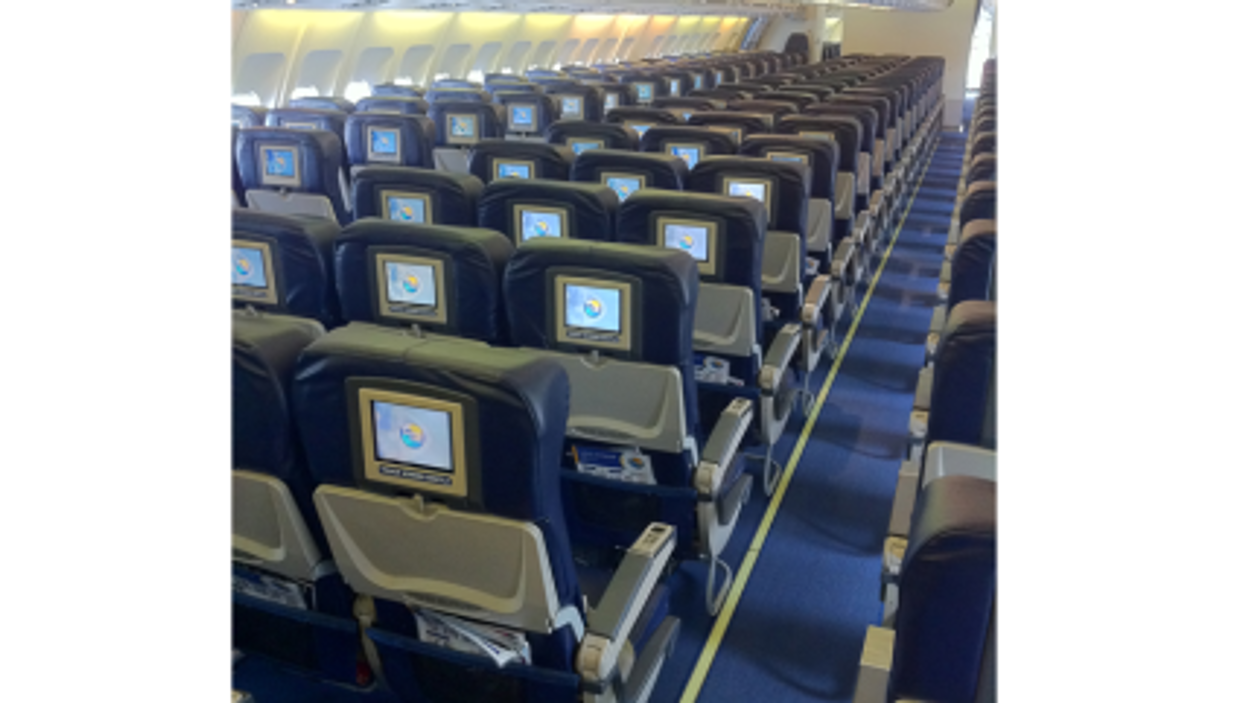Mandating Vaccines For Air Travel Is A Flight Of Fancy
Most children learn that while a few pieces of candy are a treat, eating a whole bag can be misery. Most adult understand that taking a multivitamin every day may be good for your health, but taking two or three or four is a waste. In much of life, restraint is a virtue.
That may be news to Anthony Fauci. He is a justly respected scientist whose desire to protect the health of Americans is sincere and admirable. But even the best-intentioned souls can get overzealous. In recommending a federal vaccination mandate for all domestic air travelers, he overshot the runway.
It would undoubtedly put a burden on airline employees, who are already under severe strain just trying to keep the aviation system operating. Forcing them to inspect vaccination certificates for more than one million passengers every day would take time and energy. American Airlines CEO Doug Parker said in August, "It wouldn't be physically possible to do without enormous delays in the airline system."
When I contacted Clifford Winston, an economist at the liberal Brookings Institution, he raised other questions: "First, is the marginal benefit all that much? Second, would transmission be more likely because airline passengers would have a false sense of security and not wear masks? Third, would people try to cheat the system by providing fraudulent proof they were vaccinated?"
The risk of getting infected on a plane is clearly very low — otherwise, we'd hear of super-spreader flights every day. Airliners have hospital-grade ventilation systems, and the federal mask mandate provides another reliable barrier to transmission.
Nor is it clear how much a mandate would do to foil the omicron variant. Hundreds of flights are being canceled every day because airline employees have come down with COVID-19 — even at airlines that require all their workers to get the shots.
The problem is that though the vaccines greatly reduce the severity of symptoms, they don't prevent the vaccinated from contracting the virus. So it's not at all certain that a mandate for passengers would make an appreciable difference.
Even Fauci seems to know as much. In a Monday interview on MSNBC, he didn't argue that a mandate would make sense to protect passengers and crew. He argued instead that the requirement would be an incentive for holdouts to finally get the vaccine.
Even that is mostly wishful thinking. In a 2019 survey, 41 percent of Americans said they never fly and 28 percent said they fly only once a year. The former would have zero incentive to get the shots. Many of the latter who are unvaccinated would simply skip their annual flight rather than comply. Some of them would drive instead — which, as Winston notes, is far more dangerous than flying.
We should never forget that dictates of this sort impose on the freedom of individuals. Sometimes, that imposition is justifiable to protect others. But we shouldn't force vaccinations on people in the absence of clear, substantial benefits to society as a whole.
Many of those who refuse to get the shots have gained a measure of immunity through previous COVID-19 infections — making them less of a danger to their fellow citizens. But anti-vaxxers are mainly putting themselves in jeopardy. The rest of us can largely protect ourselves, even on airplanes, by getting vaccinated, wearing high-quality masks and sanitizing our hands frequently.
Yes, masks work. A study published last year in the Journal of Travel Medicine looked at long international flights to Hong Kong on Emirates, which enforced a strict masking rule. It found that no transmission occurred even on flights carrying several infected travelers.
Fauci and plenty of other people assume that with any tactic aimed at a worthy objective, more is always better than less. But sometimes, wisdom consists of knowing when it isn't.
Follow Steve Chapman on Twitter @SteveChapman13 or at https://www.facebook.com/stevechapman13. To find out more about Steve Chapman and read features by other Creators Syndicate writers and cartoonists, visit the Creators Syndicate website at www.creators.com.











